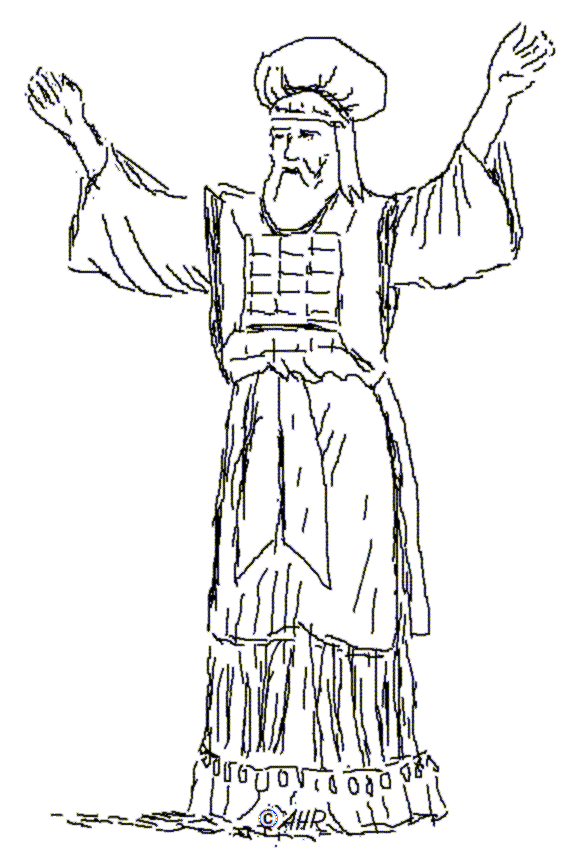 Articles in the Spotlight
( 2021-06-16) 2021-06-16) |
English version of a new Immanuel Lifestyle
article by André H. Roosma (NL) & E. James Wilder (USA)
( 2020-12-22) 2020-12-22) |
with a whish / blessing for you!
on the way out from the valley of pain and depression
by André H. Roosma
In pastoral care I often encounter people who have become
aware of some kind of trauma or trouble they experienced in their life.
In many cases, this trouble started early and took away a lot of joy and
energy from their lives – and often it still continues to steal their
joy and energy. I know this also from my own first-hand experience. Trauma
and all sorts of trouble - or re-emerging memories about it - can easily rob
us of our enthousiasm and energy. As pastoral workers we easily fall into the
trap of focussing all attention on . . .
– are emotions only nasty side-effects of our humanity or can
they be nourished and renewed as well ?
( 2015-08-25) 2015-08-25) |
by André H. Roosma
“Don’t be so emotional! It only creates
trouble!”
“Strong emotions - such as anger, depression or
fear - often get people into trouble.” Because of this idea, many
churches and ministries here in the West teach it: emotions are not to be
trusted. In Mental Health care, people are . . .
– from performance-based to healthy relating and
life-giving communities –
( 2015-07-22) 2015-07-22) |
by André H. Roosma
“Men don’t protect you anymore”
Somewhere on the Internet, I came across the above
picture. It shows a headline at a New York City cinema, early in the
’90-ies. It’s a tragic headline, I’d say. An important
question is: Is it true? Do we, men, no longer provide protection
anymore?
To protect – women, children, the vulnerable
in general . . .
– on modernism, postmodernism and the illusion of total
human power –
( 2015-08-17) 2015-08-17) |
by André H. Roosma
An English translation of an article that I wrote
already a while ago in Dutch . . .
righteousness, peace and joy: keys to pastoral care and healthy livingby André H. RoosmaLiving in the Kingdom of God, as His beloved children
– what a mighty privilege, and what a great mandate! Such a great thing
requires that we explore the Bible to see what God has in view when He speaks
of this. I did such a survey and one theme, actually one verse, spoke to me
in particular . . .
(
2015-02-21) |
by André H. RoosmaMany times I have seen that scientists discover
something, and then one recognizes that God has given us a similar advice in
the Bible, thousands of years ago. This too, is the case with the deep meaning
of a joyful, affirming and proud face of . . . |  |
by André H. Roosma
When negative experiences have left their traces in our
lives, or when we see how much better God has designed life to be, we can feel
an intense longing for renewal in our life. I also think of how we can wrestle
with specific sins, bad habits or addictions. Often I heard people sigh:
“I whish I did that!” or: “I whish that I didn’t do
this anymore!” Maybe you recognize some of this.
Then, the important
question must be asked: How does change in our life come about in . . .
A brief review of Transactional Analysis
in a Biblical Pastoral context by André H. Roosma by André H. Roosma
As human beings we are influenced strongly in our
speaking and acting by what we experienced in our first years of life.
Many scientists have developed theories on the drives behind our actions.
The Transactional Analysis by Eric Berne and others uses a metaphor of
Inner Parent, Adult and Inner Child, as an instrument to gain
more insight into these drives and to make conscious choices.
Below are some . . .
by
André H. Roosma
Certain emotions can be difficult or even tough to
experience. Powerlessness and fear, for example, are such feelings for most
of us. We go to extremes not to feel these emotions. All kinds of addictions
are used for example to numb the experience of these emotions. Especially if
we have not been guided well as children in experiencing this kind of
emotions, we may prefer to avoid them unconsciously.
The fact that many of
us have learned early already to avoid their feelings – no longer
feeling what they feel – may have painful . . .
by André H. Roosma
Part I  discusses the architecture of our brain and proposes a
simplified model for our emotional and mental processing abilities. This model
takes into account that those abilities have a layered structure and are
heavily influenced by our connections with God and others, and the connections
within ourselves. discusses the architecture of our brain and proposes a
simplified model for our emotional and mental processing abilities. This model
takes into account that those abilities have a layered structure and are
heavily influenced by our connections with God and others, and the connections
within ourselves. In Part II  the model of Part I is applied
to the processing of traumatic experiences and difficult emotions. the model of Part I is applied
to the processing of traumatic experiences and difficult emotions.
Part III  investigates attachment pain and the addictions and/or
controlling that can result from trying to numb it. investigates attachment pain and the addictions and/or
controlling that can result from trying to numb it.
Part IV  looks at our unconscious working models,
schema’s or life stories that guide our behaviour. Often
these are highly affected by trauma experiences. Here too, as in the previous
parts, the model of Part I helps to get key insights into the dynamics of human behavior
as well as keys to recovery. In that recovery, the presence of Jesus can play
a vital role. looks at our unconscious working models,
schema’s or life stories that guide our behaviour. Often
these are highly affected by trauma experiences. Here too, as in the previous
parts, the model of Part I helps to get key insights into the dynamics of human behavior
as well as keys to recovery. In that recovery, the presence of Jesus can play
a vital role. These observations are of vital
relevance for anyone involved in helping people process and/or cope with
traumatic experiences, or find freedom from addictions - both the unaccepted
and the socially accepted ones.
|